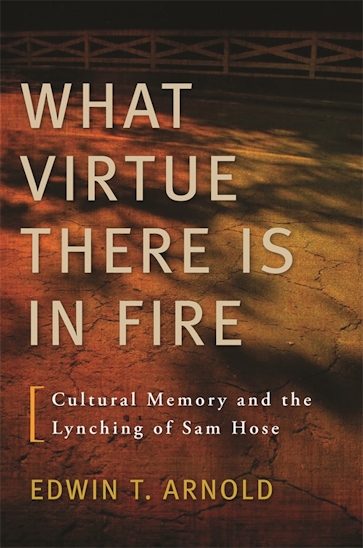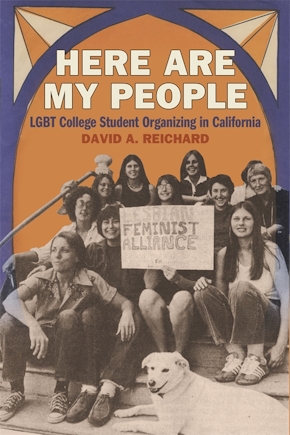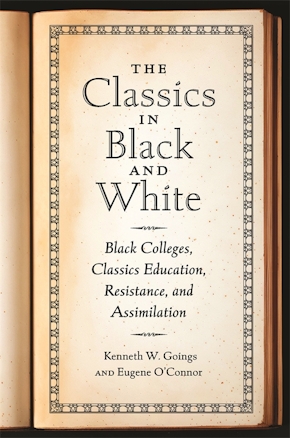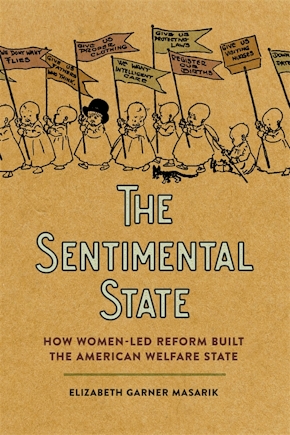What Virtue There Is in Fire
Cultural Memory and the Lynching of Sam Hose
Title Details
Pages: 264
Illustrations: 15 b&w photos
Trim size: 6.000in x 9.000in
Formats
Paperback
Pub Date: 01/15/2012
ISBN: 9-780-8203-4064-7
List Price: $34.95
What Virtue There Is in Fire
Cultural Memory and the Lynching of Sam Hose
Skip to
- Description
- Reviews
- Awards
The 1899 lynching of Sam Hose in Newnan, Georgia, was one of the earliest and most gruesome events in a tragic chapter of U.S. history. Hose was a black laborer accused of killing Alfred Cranford, a white farmer, and raping his wife. The national media closely followed the manhunt and Hose’s capture. An armed mob intercepted Hose’s Atlanta-bound train and took the prisoner back to Newnan. There, in front of a large gathering on a Sunday afternoon, Hose was mutilated and set on fire. His body was dismembered and pieces of it were kept by souvenir hunters.
Born and raised twenty miles from Newnan, Edwin T. Arnold was troubled and fascinated by the fact that this horrific chain of events had been largely shut out of local public memory. In "What Virtue There Is in Fire," Arnold offers the first in-depth examination of the lynching of Sam Hose.
Arnold analyzes newspapers, letters, and speeches to understand reactions to this brutal incident, without trying to resolve the still-disputed facts of the crime. Firsthand accounts were often contradictory, and portrayals of Hose differed starkly—from "black beast" to innocent martyr. Arnold traces how different groups interpreted and co-opted the story for their own purposes through the years. Reflecting on recent efforts to remember the lynching of Sam Hose, Arnold offers the portrait of a place still trying to reconcile itself, a century later, to its painful past.
The lynching of Sam Hose was one of the most notorious, and most fully documented, crimes ever committed in Georgia, but never have we seen it explored or explained as fully as Edwin Arnold does in this multifaceted, vigorously written, and often provocative new study. Arnold makes two gruesome crimes—one with Hose as perpetrator and one with Hose as victim—the centerpieces of a riveting account that sheds significant new light on the socioeconomics, mob mentality, political machinations, community dynamics, and long-term legacy of southern racial violence.
—John C. Inscoe, editor of The New Georgia Encyclopedia
A provocative and groundbreaking study of one of the most important spectacle lynchings in American history. The only thing more impressive than Arnold’s scholarship is his courage. This story needed to be told, and it needed a bold and careful writer to tell it.
—Christopher Metress, editor of The Lynching of Emmett Till: A Documentary Narrative
This book is not a sensationalistic rendering of the notorious incident. . . . It is a perspicacious, detailed sociological study of the conditions and forces of the Southern culture and relationships between blacks and whites. The author's aim is not to judge, shame, or moralize—but to understand how such a horrific incident and other similar atrocities could happen.
—Henry Berry, Reviewer's Bookwatch
The author uses a variety of sources, including newspapers, oral interviews, and studies of cultural memory, which Arnold deftly weaves into a fascinating account. The richness and complexity of the Hose story is told through the opinions and pronouncements of a variety of contemporaries, from Rebecca Latimer Felton, a white women’s-rights activist who viewed lynching as perfectly justifiable to protect white women’s virtue, to Robert Charles, a black laborer in New Orleans, who advised 'every negro to buy a rifle and keep it ready'.
—Journal of Interdisciplinary History
Arnold’s book provides an insightful, disturbing analysis of the racial climate in the South in 1899.
—Mississippi Quarterly
Winner
Malcolm Bell, Jr., and Muriel Barrow Bell Award, Georgia Historical Society



